Search
Did you mean: Medea?
Search Results
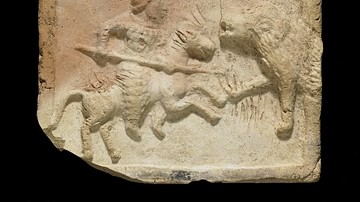
Definition
Parthian Warfare
Parthian warfare was characterized by the extensive use of cavalry and archers. Coming at enemy troops from all directions Parthian riders created confusion and wreaked havoc. They even developed the famous “Parthian shot.” Able to shoot...
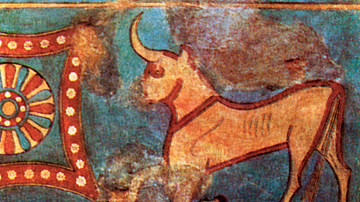
Definition
Urartu Art
The art produced by the Urartu civilization, which flourished in ancient Armenia, eastern Turkey, and northwestern Iran from the 9th to 6th century BCE, is best seen in bronze figurines of deities, bronze cauldrons with animal and goddess...
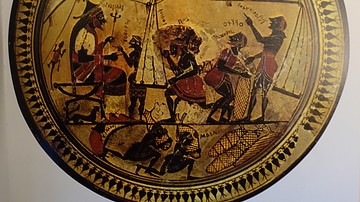
Article
Theophrastus and Pliny the Elder on Silphium
The silphium plant of Cyrene, valued as a seasoning, aromatic, and for its medicinal properties, is referenced by several notable ancient writers, but two of the best-known descriptions come from Theophrastus (l. c. 371 to c. 287 BCE) and...

Interview
Information & Communication Technologies in Cultural Heritage & Tourism
Information and communication technologies (ICT) are revolutionizing the ways in which the public interacts, understands, and appreciates the importance of cultural heritage around the world. They are additionally enabling sustainable tourism...
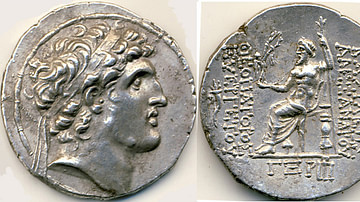
Article
Alexandros I Balas
Alexandros I Balas was a Seleucid king from 152 BC to 145 BCE. As the Seleucid king Demetrius I Soter (162-150 BCE) became more and more unpopular due to his arrogance and drunkenness, it was quite an easy task for the rival kingdoms, such...

Article
Parthia: Rome's Ablest Competitor
As a superpower in its own right and in competition with Rome, Parthia's empire - ruling from 247 BCE to 224 CE - stretched between the Mediterranean in the west to India in the east. Not only did the Parthians win battles against Rome they...

Video
Cult of Mithras Explained
The Cult of Mithras was a thriving religion in the Roman Empire. But by the 5th century....it was gone. What do we know about the Cult of Mithras? And what was its relationship with Christianity? Twitter: @andrewmarkhenry Blog: www.religionforbreakfast.com...

Book Review
The Reception of Cleopatra in the Age of Mass Media
The first chapter acknowledges the impact that Roman literature had on European portrayals of Cleopatra as an immoral outsider. In the Renaissance and early modern period, writers and painters associated Cleopatra with foreignness, murderous...

Definition
Petrarch
Petrarch (1304-1374 CE), full name Francesco Petrarca, was an Italian scholar and poet who is credited as one of the founders of the Renaissance movement in art, thought, and literature. Petrarch actively searched for 'lost' ancient manuscripts...
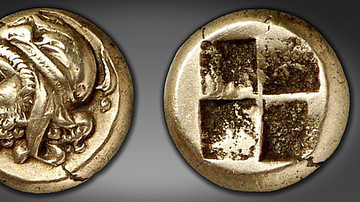
Definition
Ancient Persian Governors
The Achaemenid Persian Empire functioned as well as it did because of the efficient bureaucracy established by its founder Cyrus the Great (r. c. 550-530 BCE) which was administered through the satrapy system. A Persian governor of a province...